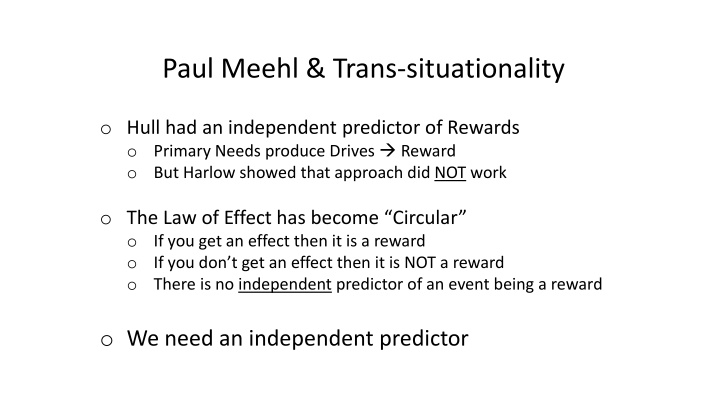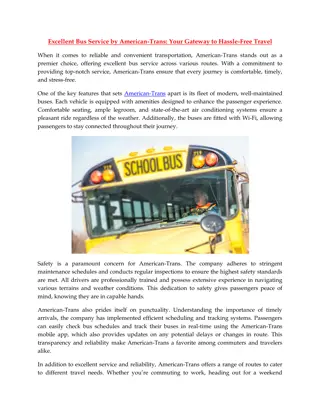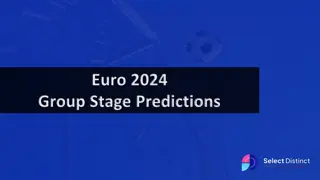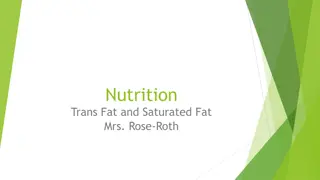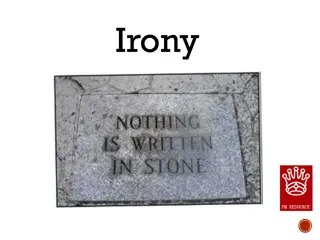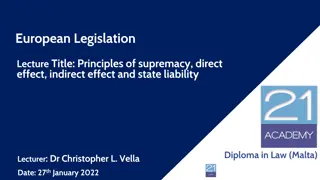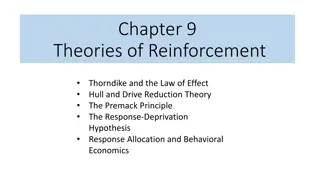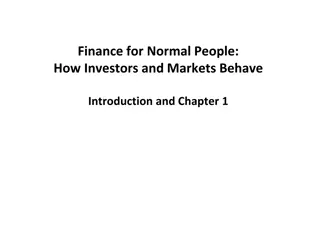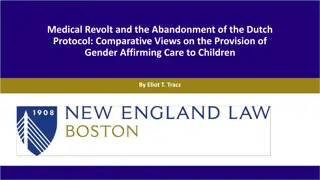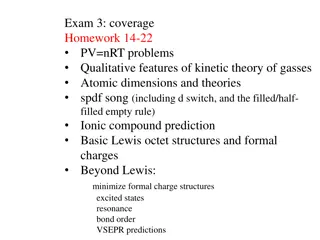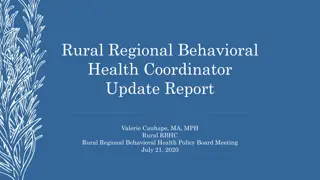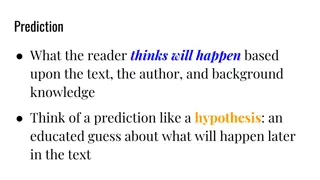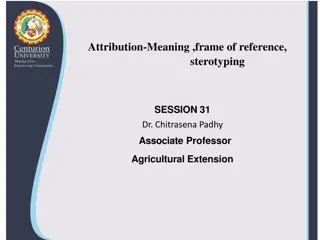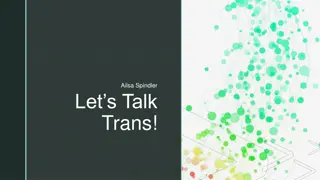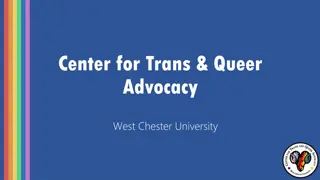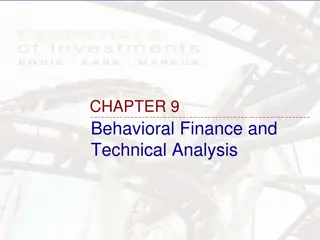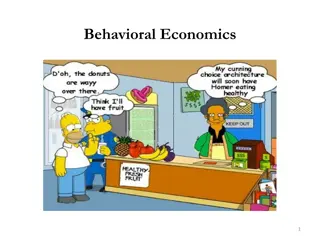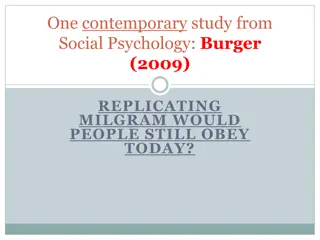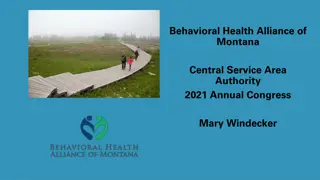Trans-Situational Law of Effect & Behavioral Predictions
The concept of Trans-Situational Law of Effect explores how rewards influence behavior in different contexts. By examining past behaviors and available rewards, one can predict which rewards will effectively modify specific behaviors. This approach emphasizes the importance of understanding the controlling properties of events to anticipate behavioral outcomes across situations.
Download Presentation

Please find below an Image/Link to download the presentation.
The content on the website is provided AS IS for your information and personal use only. It may not be sold, licensed, or shared on other websites without obtaining consent from the author.If you encounter any issues during the download, it is possible that the publisher has removed the file from their server.
You are allowed to download the files provided on this website for personal or commercial use, subject to the condition that they are used lawfully. All files are the property of their respective owners.
The content on the website is provided AS IS for your information and personal use only. It may not be sold, licensed, or shared on other websites without obtaining consent from the author.
E N D
Presentation Transcript
Paul Meehl & Trans-situationality o Hull had an independent predictor of Rewards o Primary Needs produce Drives Reward o But Harlow showed that approach did NOT work o The Law of Effect has become Circular o If you get an effect then it is a reward o If you don t get an effect then it is NOT a reward o There is no independent predictor of an event being a reward o We need an independent predictor
Trans-situational Law of Effect o Two Types of Responses o Controlled by the Law of Effect o NOT controlled by the Law of Effect o Two Types of Consequences (the event that follows the response) o Events that will work as Reward/Reinforcer o Events that will NOT work as Reward/Reinforcer o Principle of Trans-situationality o Law of Effect works but must know o Type of Response controlled by Law of Effect? o Type of Consequence is it a Reward? o You can then predict which rewards work with which responses
Idealized application of Trans-Situational approach o The Goal is to use a Reward to change a specific Behavior o Question 1: Has this behavior been changed in the past by a reward in other situations? o Question 2: Is there a verified reward available to be used in this situation? o The approach generates lists of responses and rewards that can be used trans-situationally.
Meehls Basic Conclusions o Law of Effect works. o There exist certain events that have a special property that controls whether a behavior will be repeated. o That special property is unidentified at the moment. o But once we identify an event as having that special property then we can predict the effect of that event in other situations.
